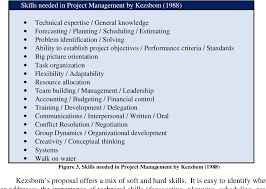
Boutique consulting firms might be a good option if you are interested in a career. This type of firm is often smaller and provides more specialized services. These firms also have higher salaries and a more entrepreneurial culture. Boutique firms can also provide an environment where employees are encouraged and supported to develop as professionals.
Smaller size
A boutique, smaller-sized consultancy firm may be an option if the cost of great resources is a concern. There are several advantages to working with these small firms. They can also be more affordable than larger companies. There are however some drawbacks to small consulting firms.
Although big companies can be great places to work, it is possible that boutique firms could be better for your career. They value industry knowledge and fit more than size. Because they are smaller firms than global consultancies that screen applicants, they are less likely and more inclined to hire a "blank-slate" candidate.
Specialized services
The boutique consulting firms are experts in a certain field and work with clients to address specific issues. They provide many services, such as data management, cloud migrating, and advanced machine learning-powered analytics. These firms also use agile methodology, which makes them more flexible and responsive. They are more responsive to changes in project scope.

Boutique consulting firms specialize in specialized services to help enterprises solve unique business problems. They draw upon the collective experience and expertise of their team to help enterprises resolve the most urgent problems. Their knowledge allows them help enterprises use technology to transform themselves. Boutique consulting firms are vital partners in an era when companies have to respond faster than ever.
Entrepreneurial culture
The average boutique consulting firm has less than 200 employees and offers highly customized services. They can often be considered a family of workers, people who share a passion and work together. Boutique consulting firms tend to be more flexible and allow their employees to work remotely if needed.
Boutique consulting firms often have a more entrepreneurial culture than traditional consulting firms. Entrepreneurial spirit can be seen in both the firm's culture and client service. This environment can foster creativity and innovative consulting.
Higher salaries
Boutique consulting has some advantages over traditional MBB. For one, smaller firms are more flexible that larger ones. They are often less rigid about reviews, and you can expect to work less than 50 hours per week and travel one week per month. Boutique consulting firms tend to be more flexible with compensation and benefits than larger companies.
For example, salaries for new hires at boutique consulting firms are significantly higher than at large firms. In general, new graduates can expect to earn between PS30,000 and PS42,000 within the first two or three years. Boutique consulting firms offer many additional financial benefits.

Simplified process
Smaller consulting firms offer the benefit of being smaller and more flexible in their operations. The senior staff is highly skilled in their field. This allows them better advice and implementation support to their clients. They also have a lower travel burden and a higher degree of flexibility. This allows them to move quickly to the next project.
Smaller consulting firms specialize in a certain area. They can provide specific information about particular issues or problems and aim to help each client improve their company. Some boutique firms specialize in government or public sector work, while others specialize in a specific industry.
FAQ
Why would a company hire a consultant?
Consultants offer expert advice to help improve your business' performance. Consultants are not there to help you sell products.
Consulting helps companies make better decisions. They provide sound analysis and offer suggestions for improvement.
Consultants often work closely with senior management teams to help them understand what they need to do to succeed.
They provide coaching and leadership training for employees to enable them to achieve their peak performance.
They can help businesses reduce costs, streamline processes, and increase efficiency.
Can anyone become a consultant
A consultant is someone who assists you in achieving your goals by offering advice and suggestions on how to achieve it faster, cheaper, and so forth.
You may need a consultant to help you with problems, make decisions or negotiate with others.
Consultants are often hired to help with specific tasks and projects.
Consultants are usually paid hourly, daily or per project.
What happens when the consultant finishes his job?
After the consultant has completed the work, they will submit a final document detailing the results. This report includes the deliverables and project timelines.
Next, you will review the report and determine if the consultant has met your expectations. You can request modifications or terminate your contract if the report is not satisfactory.
How much does it cost to hire a consultant?
There are many factors that go into the cost of hiring a consultant. These include:
-
Project size
-
Time frame
-
Scope and nature of work
-
Fees
-
Deliverables
-
Other factors such as location and experience are also important.
Can I get a degree as a consultant?
The best way to become an expert on any subject is by studying the subject thoroughly and then practicing what you have learned.
Start studying today if you want the skills to be a great manager!
You may not be able to get hired if you don't have relevant experience but a degree. But, if your qualifications are comparable to those who have been hired, you might still be eligible to apply.
Employers are always looking for people with real-world knowledge.
How much do consultants make?
Some consultants earn more than $100k per year, but most consultants earn between $25 and $50k. An average consultant salary is $39,000 This includes both salaried and hourly consultants.
Salary depends on industry, experience, location, and type of contract (contractor vs employee). Also, whether the consultant is located in their office or remote.
What is the difference of a consultant versus an advisor?
An advisor is someone who provides information about a subject. A consultant provides solutions to problems.
Consultants work directly for clients to help achieve their goals. The advisor provides indirect advice through books, magazines lectures, seminars, and the like.
Statistics
- Over 50% of consultants get their first consulting client through a referral from their network. (consultingsuccess.com)
- According to statistics from the ONS, the UK has around 300,000 consultants, of which around 63,000 professionals work as management consultants. (consultancy.uk)
- So, if you help your clients increase their sales by 33%, then use a word like “revolution” instead of “increase.” (consultingsuccess.com)
- On average, your program increases the sales team's performance by 33%. (consultingsuccess.com)
- According to IBISWorld, revenues in the consulting industry will exceed $261 billion in 2020. (nerdwallet.com)
External Links
How To
How To Find The Best Consultant?
First, ask yourself what kind of consultant you are looking for. Before you start looking for someone to work with, it's important that you know your expectations. You should make a list of all the things you need from a consultant. This might include skills such as project management, professional expertise, communication, availability, and technical skills. After you have outlined your requirements, you might want to ask friends and colleagues for recommendations. Ask your friends and colleagues if they have had bad experiences with consultants in the past. Compare their recommendations with yours. Research online if you don’t already have recommendations. There are many websites, such as LinkedIn, Facebook, Angie's List, Indeed, etc., where people post reviews of their previous work experiences. You can use the comments and ratings left by others to help you find potential candidates. After you've compiled a list of potential candidates, it is time to reach out to them and schedule an interview. You should discuss your requirements with the candidates and ask them how they can help. It doesn't matter whether they were recommended to you or not; just ensure that they understand your business objectives and can demonstrate how they can help you reach those goals.